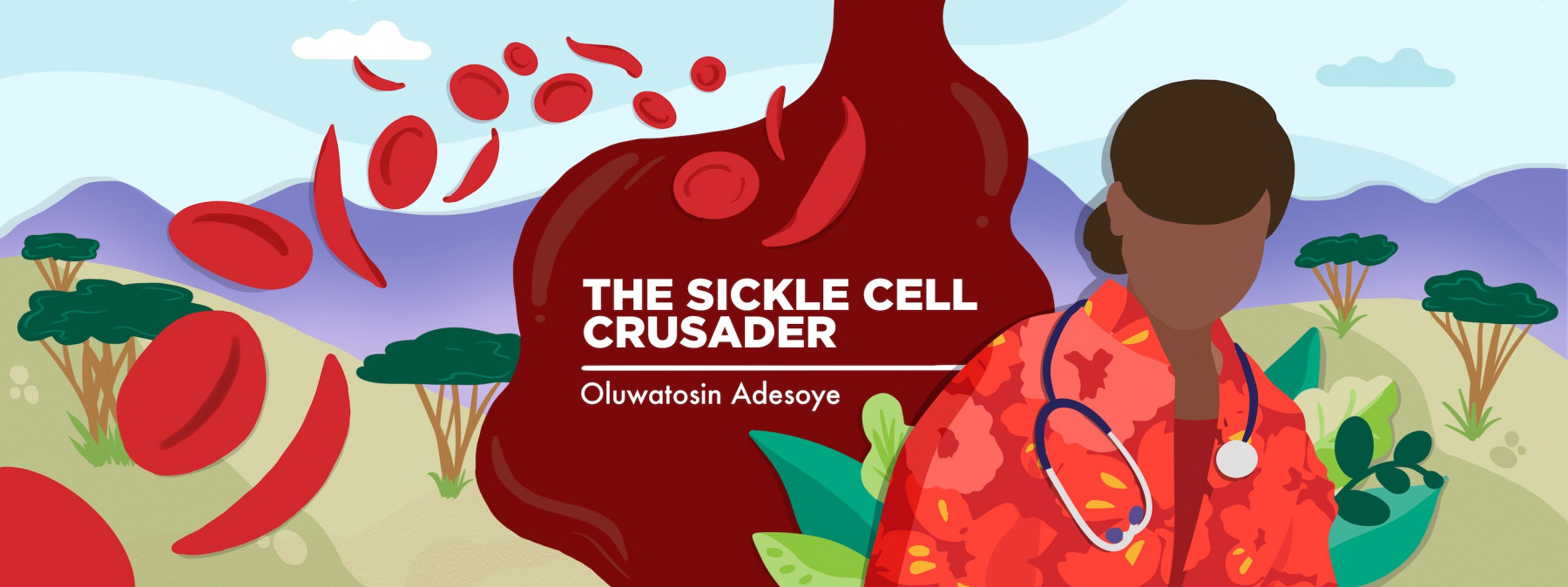What health professionals shouldn’t say to sickle cell patients, Part 2
The problematic remarks I've encountered as a physician and sickle cell warrior

Second in a series. Read part one.
Living with sickle cell disease presents a unique set of challenges. Unfortunately, some health professionals exacerbate these difficulties with insensitive and uninformed remarks.
In my last column, I discussed some hurtful and unnecessary comments sickle cell patients frequently hear from providers, based on my experiences as a physician and sickle cell warrior. This week, I want to highlight even more misguided statements to improve understanding of the condition.
Lacking a basic understanding of sickle cell disease
One remark patients often hear in the emergency room is, “Your bloodwork is normal, so you shouldn’t be having a crisis.” It’s important to understand that a crisis can be occurring even if lab results appear fine. Such statements reveal a lack of knowledge about the complexities of sickle cell disease.
Another disheartening comment often made by health professionals is, “My other sickle cell patients are not affected this way.” This remark showcases a profound lack of understanding, as sickle cell affects people differently — even those with the same genotype. A variety of factors that aren’t always within our control can influence the severity and manifestation of the disease. That’s why pain management requires an individualized approach.
Another tip that the provider lacks an understanding of the disease is an amusing question: “Since when have you had this disease?” Sickle cell is inherited, not acquired, which means patients are born with it.
Next, telling a parent that their child will die before the age of 20 is absolutely unacceptable, especially if the parent hadn’t asked about prognosis. In the past, patients faced a shorter-than-average life expectancy, but thanks to advancements in treatments and improved care and management, many now live well into adulthood and even old age. I know warriors in their 70s and beyond.
It’s important to note that sickle cell can cause life-threatening complications, such as acute chest syndrome, stroke, or organ damage, and can negatively affect a person’s quality of life. But with appropriate medical interventions, many sickle cell patients can live long lives. Instead of expecting patients to die prematurely, health professionals should focus on providing quality care.
Avoiding judgment and expectations
One comment that’s common among African health professionals is the suggestion that patients should get married and have children before the age of 30. Here in Nigeria, marriage and childbearing are almost compulsory, particularly for women. While it’s not inappropriate to discuss marriage and parenthood with those who are open to it, emphasizing this topic during every clinic appointment can put unnecessary pressure on patients. This can result in mental stress, which can have a negative impact on a person’s overall health. It’s crucial to acknowledge that being unmarried and not having children are valid options. Sickle cell patients shouldn’t be burdened with unnecessary societal expectations.
One final comment to avoid is, “You were in pain last week, so you can’t be in pain again this week. You must be a drug-seeker.” This is unfortunately a common belief among health professionals, particularly those who lack understanding of sickle cell pain. However, it’s essential to recognize that experiencing pain over consecutive weeks doesn’t automatically imply drug-seeking behavior. Sickle cell pain can be acute or chronic and last for varying durations ranging from seconds to months. Health professionals should trust a patient’s description of their pain and refrain from making assumptions based on biases or misconceptions.
All of these inappropriate remarks demonstrate why better sickle cell education is needed among health professionals. A shoutout to the empathetic, knowledgeable, and ethical providers who provide quality care for their patients. Together, we can all challenge misconceptions and foster a more informed and supportive environment for sickle cell patients.
Note: Sickle Cell Disease News is strictly a news and information website about the disease. It does not provide medical advice, diagnosis, or treatment. This content is not intended to be a substitute for professional medical advice, diagnosis, or treatment. Always seek the advice of your physician or other qualified health provider with any questions you may have regarding a medical condition. Never disregard professional medical advice or delay in seeking it because of something you have read on this website. The opinions expressed in this column are not those of Sickle Cell Disease News or its parent company, Bionews, and are intended to spark discussion about issues pertaining to sickle cell disease.








Jacqueline Medler
Hi Dr Oluwatosin,
Again, I enjoyed your knowledge and personal experience in writing this informative article!
Much Love, In Jesus' name, Amen
Oluwatosin Adesoye
Thank you so much for your kind words and appreciation! I'm glad you found the article informative. Your support and blessings mean a lot. Wishing you abundant love and blessings in Jesus' name. Amen